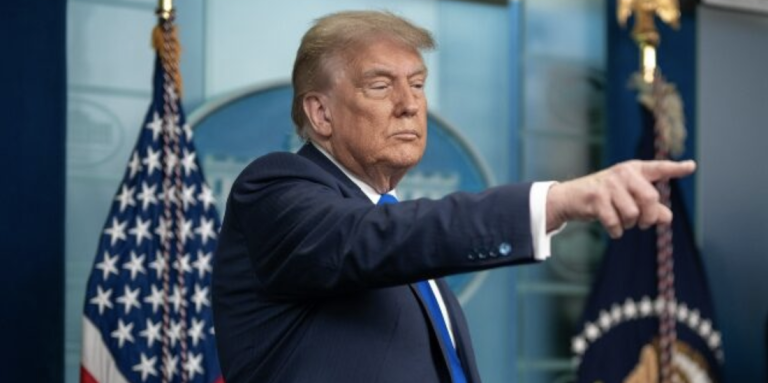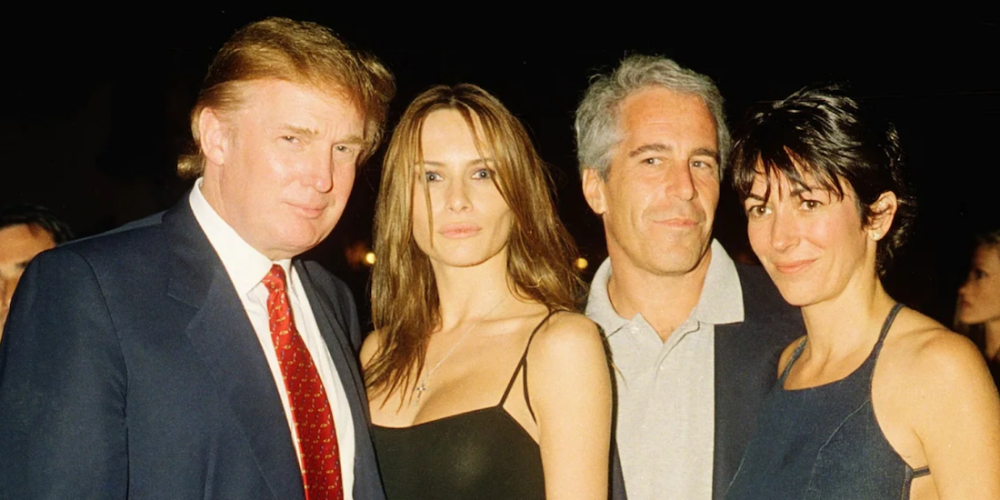
New York, N.Y. – The recent call of President Donald Trump [Luce Index™ score: 35/100] or the “immediate” release of “all pertinent” grand jury testimony related to the Jeffrey Epstein investigation has ignited fierce debate.
Framed as a demand for ultimate transparency concerning the deceased financier and convicted sex offender’s network, critics swiftly decry the move as a masterclass in political gaslighting, designed to project openness while ensuring any released material is meticulously sanitized of connections to Trump himself.
This maneuver arrives amidst Trump’s ongoing legal battles and intensifying scrutiny over his past associations with Epstein, raising profound questions about motive and the selective application of accountability.
Demanding Disclosure Amidst Mounting Personal Legal Peril
Trump’s statement, disseminated via his Truth Social platform on July 17, 2025, urged Judge Loretta Preska, overseeing the release of Epstein-related documents, to authorize the disclosure of “every scrap of testimony” before the grand jury that investigated Epstein.
He positioned this as essential for exposing “the whole, disgusting truth” about Epstein’s co-conspirators and clients.

While demands for transparency regarding the Epstein scandal are not inherently controversial, the timing and source trigger immediate skepticism.
Trump faces multiple felony indictments, including charges related to the January 6th Capitol riot and alleged mishandling of classified documents.
Critics argue this sudden zeal for openness concerning Epstein serves primarily as a diversionary tactic, shifting media focus and rallying his base with a populist anti-elite stance, while his own legal vulnerabilities mount.
The Shadow of Mar-a-Lago and Ghislaine Maxwell
The core critique centers on Trump’s own documented history with Epstein. Photographs, flight logs, and witness accounts place Trump and Epstein in the same social orbit for years, including parties at Mar-a-Lago.
While Trump publicly distanced himself after Epstein’s 2008 conviction, their association during the period Epstein was allegedly trafficking minors remains a persistent question mark.
Furthermore, Ghislaine Maxwell, Epstein’s convicted accomplice, was a guest at Trump’s Mar-a-Lago wedding.
Trump’s definition of “pertinent” testimony becomes the critical battleground. Skeptics contend that “pertinent,”
in this context, is functionally synonymous with “anything not connected to Donald Trump,” suggesting any records
released under such a vague directive would undergo rigorous vetting to excise potentially damaging links,
resulting in a curated, rather than complete, historical record – the very antithesis of genuine transparency.
This selective approach fuels accusations of hypocrisy, particularly given Trump’s frequent attacks on judicial processes and grand jury secrecy when deployed against him or his allies.
Grand Jury Secrecy: A Shield With Exceptions
Grand jury proceedings are traditionally shrouded in secrecy, a principle enshrined to protect witnesses, encourage candid testimony, and prevent the flight of potential targets. However, exceptions exist. Judge Preska is already overseeing the phased release of documents from a civil defamation case involving Epstein accuser Virginia Giuffre and Maxwell, citing public interest.
Releasing actual grand jury testimony is a significantly higher legal hurdle. Courts weigh the historical significance of the case, the public interest, and potential harm to individuals still living. Trump’s blanket demand ignores these complex legal nuances.
Legal experts suggest a more credible push for transparency would involve supporting specific, narrowly tailored requests for testimony related to identifiable, unresolved questions within the investigation, rather than a politically charged blanket demand issued amidst personal legal turmoil.
The broad call feels less like a principled stand for justice and more like a strategic effort to muddy waters and imply his own exoneration by association if no directly incriminating evidence surfaces from the sanitized subset deemed “pertinent.”

The Transparency Double Standard and Public Trust
The profound cynicism surrounding Trump’s demand stems from a perceived pattern: demanding maximum transparency for others while aggressively fighting it for himself.
His administration was marked by unprecedented government secrecy and attacks on the free press. His current legal strategy across multiple cases heavily relies on delaying tactics and challenging the legitimacy of investigations. This context renders his sudden advocacy for unfettered disclosure in the Epstein case deeply incongruous.
For many observers and victims’ advocates, true justice for Epstein’s victims requires comprehensive, unredacted exposure of his entire network, irrespective of political affiliation or power.
A release limited only to testimony deemed non-threatening to Trump would constitute a profound betrayal, reinforcing perceptions of a two-tiered justice system where the powerful manipulate transparency for self-preservation. It risks further eroding public trust in institutions already battered by partisanship and the complexities of the Epstein saga.
Conclusion: Optics Over Substance in the Epstein Saga?
Donald Trump’s call to release “all pertinent” Epstein grand jury testimony resonates as a classic political maneuver. It leverages legitimate public outrage over the Epstein cover-up while simultaneously creating a scenario where the likely outcome – a release heavily filtered to protect Trump – can be spun as vindication.
The timing, amid his own serious legal jeopardy, the history of his association with Epstein, and his established pattern of weaponizing transparency only when advantageous, all point towards a calculated distraction.
Genuine transparency demands impartiality and a commitment to uncovering the whole truth, not just the convenient parts. Until the demand encompasses the possibility of uncomfortable revelations for all implicated, including the demander himself, it will rightly be viewed as political theater, not a sincere pursuit of justice for Epstein’s victims.
The burden now lies with the judiciary to navigate this fraught terrain, ensuring any disclosure serves the cause of true accountability, not merely the political agenda of one deeply entangled figure.
Audio Summary (75 words):
President Trump demands release of “all pertinent” Epstein grand jury testimony, claiming transparency. Critics blast this as gaslighting, arguing “pertinent” means sanitized records excluding Trump links. Timing amid his own legal battles and past Epstein ties fuels suspicion. Grand jury secrecy protects witnesses, making blanket release unlikely. The move appears a diversion, exploiting public anger while ensuring any disclosure avoids implicating him, highlighting a perceived double standard on accountability and transparency.